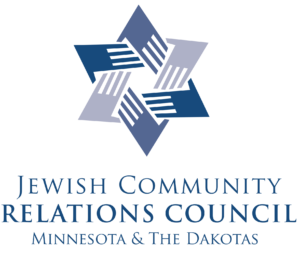Strategic Partners
In order to achieve our vision JHA (Jewish Heritage Alliance) is developing a unique platform intended to explore and promote the history and consequences of Sefarad (Jews of the Iberian Peninsula). To accomplish this mission, we are developing strategic alliances and partnering with a variety of organizations, institutions, and individuals, covering the private and public sectors, including religious, secular, historic, academia and governments.Together we are creating a dynamic portal that will detail the saga of the Jews of Sefarad from inception to inquisition, pogroms, massacres, forced conversions, expulsion and beyond.
The strategic alliance concept is intrinsic to JHA doctrine of delivering the Sefarad saga, with all its complexities and effects, to the public at large (Public Domain). Most of our strategic partners operate unilaterally, independent of one another. Jewish Heritage Alliance, as the name suggests, brings these autonomous organization and their respective work to a central platform, thereby providing (a greater) impact of the collective.
Netanya, a Mediterranean resort city in central Israel, well-known for its sandy beaches, is also home to Netanya Academic College, a learning center that provided higher education to the million residents of the Sharon and periphery, including thousands of immigrants as well as native-born Israelis. The college is accredited by the Council for Higher Education to award Bachelor’s and Master’s degrees in a wide range of subjects, such as Law, Business Administration, Computer Science and Mathematics, Behavioral Sciences, Communications, Insurance, and Banking & Finance. The College faculty consists of professors and scientists of renown who hold Ph.D. degrees from leading universities worldwide.
During 2011, in response to the extraordinary phenomenon of contemporary descendants of the Anousim (forced converts from the Iberian Peninsula) to reclaim their Hispano-Jewish heritage, Netanya Academic College introduced an adjunct project creating the Institute for Sefardi and Anousim Studies (ISAS). The Institute is intended to serve as the leading global research institution dedicated to the history and culture of Sefardi Jewry, with a specific focus on the history of the Anousim, including the study of the motives and processes of the desire of contemporary individuals of Hispanic descent to connect on some level with their Sefardi roots and heritage. The project’s logo features the fabled phoenix, the bird which emerges renewed from the flames. The phoenix was a symbol adopted by the Spanish-Portuguese Jewish community in Amsterdam as early as the 17th century.
The Institute’s aims include:
• Conduct historical research of Sefardi Jewry and its cultural legacy with special emphasis on the history of the Iberian Anousim, their Diaspora, and those who claim to be their modern descendants.
• Collect data on the Anousim Diaspora, and provide genealogical research services to individuals.
• Educate youth about Sefardi heritage and increase awareness of the contemporary search for Ibero-Jewish roots and identity throughout the Western Hemisphere.
The Institute activities include:
• Research, workshops, seminars, lectures, cultural and artistic events in Ladino, adult and youth educational seminars, academic publications.
• An annual international academic conference.
• Competitive research grants.
• A Genealogical Research Unit for general research and as a service to individuals seeking their Iberian-Jewish roots.
• Youth cultural trips to Spain and Portugal.
• Expansion of our unique scholarly library containing thousands of books and rare documents.
Past international conferences:
- RECONNECTING 2016: Reinvigorating Shared Latino-Jewish Roots and Heritage, 7-8 September 2016.
- The Anousim Diaspora Today: Jewish Challenge and Hope, following the inaugural session of the Knesset Caucus for the Reconnection with the Descendants of Spanish and Portuguese Jewish Communities, 13 October 2015.
- Mapping the Anousim Diaspora: Six Centuries of Pushing Borders, 23-24 March 2015
All of the Institute’s activities and resources can be viewed on our website, http://sefardi-anousim.org.il, which is available in English, Spanish, and Portuguese language versions.

21 February - 8 March 2017
: The First two week Seminar for Lay Leaders of Bnei Anousim communities in Brazil celebrated at the Institute. The seminar focusses on strengthening the skills and knowledge of lay leaders, who will return to their fledgling communities renewed in purpose and commitment.
Objectives of this first gathering:
- Create a leadership core for Bnei Anousim communities and groups o Strengthen the Jewish identity that is awakening in these men and women, following many years of clandestine life, restraint, and fear.
- Create an infrastructure capable of bringing together different groups of Bnei Anousim.
- Legitimize the Bnei Anousim cause in the eyes of our public institutions through meetings with rabbis and other institutions in Israel, increasing their visibility.

November 28-30, 2108: RECIFE- Brazil The First Brazilian Encounter on Crypto-Judaism ISAS in Recife (Brasil)
This was the first conference of its kind in Brazil, and it attracted many important participants, including researchers, historians, writers, anthropologists, representatives from local and international organizations, the Consul General of Israel in São Paulo, Dori Goren, and representatives from Anousim communities from the northeast and other areas of Brazil.
The conference culminated in a moving reading of the "Recife Declaration", a document written at the conference asking the communal authorities to be more receptive to the situation of these emerging Anousim communities in Brazil.

INTERNATIONAL CONFERENCE: RECONNECTING 2016
The ISAS’s international conference for 2016 was RECONNECTING 2016: Reinvigorating Shared Latino-Jewish Roots and Heritage which took place on 7-8 September in Miami, Florida. The ISAS is grateful to the conference’s main benefactor, Mr. Michael Dezer, owner of the Trump International Beach Resort, where the conference was held.
The ground-breaking conference was intended to enhance Jewish-Latino relations and emphasize shared historical and cultural roots among Latinos and Jews, and enlarge the network of community, social, and religious groups working to advance their common heritage and values. The conference also raised awareness in the Latino world regarding the widespread phenomenon of Bnei Anousim in their communities today.
During the two-day conference, over three hundred participants enjoyed a historic coalition of speakers from five continents, including:
• Leading Israeli diplomats, including Ambassador Dani Dayan, Consul-General of the State of Israel in New York and Lior Haiat, Consul to Florida and Puerto Ric
• Internationally known experts in the field, including Prof. Anita Waingort Novinsky (Brazil); Prof. David Gitlitz (Mexico/USA); Prof. Nathan Wachtel (France); Prof. Sergio DellaPergola (Israel); and Seth Kunin (Australia)
• Representatives of Latino and Jewish organizations, including Betty Ehrenberg, Executive Director, World Jewish Congress-USA; Rabbi Stephen Leon, Anousim Center, El Paso, TX; Bonita Nathan Sussman, Kulanu; Pastor Mario Bramnick, Hispanic Israel Leadership Coalition; and David E.R. Dangoor, American Sephardi Federation
• Pastor Dr. John Hagee was the keynote speaker for the conference Gala Dinner

CONFERENCE REVEALS TRUE STORIES OF THE BNEI ANUSIM (CONVERSOS)
Fabio Franciolly Fonseca, Dr. Joseph Maldonado, and Lisette Valdez Valle were the three speakers at the "Personal Stories" session in the RECONNECTING 2016 conference on September 7-8, 2016 in Miami, FL. All three were born as Christians but each found that they were descendants of Bnei Anusim (Conversos), and each had very moving story about their journeys back to their Jewish heritage. Please listen to these compelling, life-changing stories, a testament to the existence of the perpetual Jewish Soul.
Fabio Franciolly Fonseca at RECONNECTING 2016
Northeastern Brazil
Lisette Valdez Valle at RECONNECTING 2016
Miami Florida, USA
Joseph Maldonado at RECONNECTING 2016
Upstate New York, USA
Rabbi Gilberto (Emanuel in Hebrew) Ventura of Sao Paulo Brazil is a special and unique human being, or as we say in Hebrew, a real Tzadik, a righteous man set on a selfless mission to help his fellow man, and not just any fellowman, but especially the plight of the weary lost souls of the Conversos or Marranos, both terms applied to the descendants of the Jews of Spain and Portugal that were forced to convert to Christianity. The prevailing wisdom suggests that there are over 55 million Conversos worldwide, a staggering number when considering that the entire Jewish population hovers at approximately 14 to 16 million worldwide. It seems that the lion share of the Conversos reside in several regions of Brazil, a country larger than continental USA.
As he explains in his video (below), Rabbi Ventura almost singlehandedly has created the outreach platform to assist these amazing Conversos or "Bnei Anusim" (Children of Jews forced to Convert during the Inquisition Periods). Appropriately named "Sinagoga Sem Fronteiras" (Synagogue Without Borders), the brainchild of Rabbi Ventura who traverses the expanse of Brazil's landmass to visit the Converso communities wherever they reside, teaching them about Judaism and way of the Torah; answering the many complex questions regarding Jewish traditions and conversion requirements; ultimately assisting many to return home and covert back to being the Jews that their ancestors were before the forced conversion of the Spanish Inquisition some 500 years ago.
Brazil embodies the Saga of Sefarad and the Converso (Bnei Anusim) phenomenon more than any other place on earth. While this narrative is 530 years in the making, it’s only now that the existence and plight of the Conversos is coming to light. We invite you to experience, firsthand, the amazing and incredible work and commitment of one person that had no fear and singlehandedly reached out to thousands, if not millions, of Conversos desperate to come back home.

JCLC
Rabbi Ariel Yeshurun
Jewish Community Learning Center
In 2010 Rabbi Ariel Yeshurun, his wife, Ruhama, and family moved to Bay Harbor Islands in Florida where they quickly got involved with the local Jewish communities. Being a community activist and a friend of Israel, Rabbi Yeshurun set on a course that would shed light on Jewish issues and concerns. This included the launch of adult education programs that would disseminate Jewish learning by creating a Jewish Community Learning Center (JCLC) that among others, would provide adult education opportunities for Jews from all walks of life.
Being a visionary, Rabbi Yeshurun set the course of JCLC as an open structure platform that would embrace multi-faceted projects and institutions catering to the complex and diverse needs of a modern Jewish community. Rabbi Yeshurun boasts over a decade of ardent outreach and community work drawing on unique experience including work with remote congregations. He understands the sensitive dynamic of community life, relates well to the challenges facing Jewish Communities with special attention to teens and young adults extending a lending hand and at the ready to teach, guide and inspire.
On the education side JCLC current student body hovers at approximately 150, all of whom have been impacted profoundly by Rabbi Yeshurun style of teaching, influencing their Jewish connection and senses of community.
Jewish Heritage Group is proud to partner with Rabbi Yeshurun and the JCLC on a host of projects. As a progressive, forward thinking group, JHG welcomes this trail blazing young Rabbi and his amazing work with JCLC. Together we spearhead many “outside the box” projects that enhance Jewish Heritage in many forms throughout the globe.
JHG joins JCLC in its objectives in creating a dynamic, multi-faceted association that can cater to the many different needs of heterogeneous Jewish communities both locally and abroad, creating events and offering important and relevant information, past and present, with opportunities to learn and grow coupled with recreational and cultural programs.
Rabbi Ariel Yeshurun
Interview with Rabbi Ariel Yeshurun of Skylake Synagogue
Rabbi Stephen A. Leon was born in Brooklyn, New York. He graduated from Colombia University and the Jewish Theological Seminary of America, receiving his ordination from the Academy for Jewish Religion. Rabbi Leon was the dean of the Academy for Jewish Religion from 1974 through 1986. He also was an instructor in Homiletics, Practical Rabbinics, and Cantillations. At the same time, Rabbi Leon served as the rabbi of Elmwood Park Jewish Center in New Jersey from 1971 through 1986.
From 1986 to the present, Rabbi Leon has been the spiritual leader of Congregation B'nai Zion in El Paso, Texas. In addition to leading services, overseeing Talmud Torah, and providing adult education courses, Rabbi Leon has presided over countless life cycle events for El Paso families. He served on the boards of the bioethics committee of Providence Hospital, El Paso Hospice, the Jewish Federation, and the Holocaust Museum.
But what truly distinguishes Rabbi Stephen Leon from most other Rabbis is a unique calling foreordained for him to serve a higher cause than most have the opportunity to serve… assisting the perplexed lost souls of the local Conversos adrift amid bewilderment of their true identity. Having arrived in this southwestern region of the United States, Rabbi Leon found himself confronting a subject and reality that he neither studied nor was prepared to handle. Slowly but steadily Rabbi Leon was introduced to, and confronted with, the story of the Conversos or in Hebrew the Bnei Anusim, the descendants of the Jews that were forced to convert during the inquisitions of the 15th century that took place on the Iberian Peninsula (Spain and Portugal) and points beyond. Rabbi Leon found his calling by extending a helping hand to bring many descendants of Sephardic Jews back to their Jewish roots.
Rabbi Stephen Leon is a guest speaker in the RECONNECTING 2016 conference.
We invite you to learn and experience the amazing lifelong work of Rabbi Stephen Leon, a teacher, a rabbi and facilitator of Bnei Anusim (Descendants of Jews forced to convert to Christianity), providing heartfelt guidance back to their roots and the Jewish faith. Click here to view his good work, presentations and his recently published book “The Third Commandment and RETURN of the Anusim"
The Center for Latino–Jewish Relations and Crypto-Jewish Studies was founded by Rabbi Peter Tarlow, Executive Director of the center, and Mr. Jacob "Jake" Monty, Chairman of the Board, and a major player in Texas politics and a successful lawyer in Houston. The center for Latino–Jewish Relations and Crypto-Jewish Studies serves as a foundation for Crypto-Jewish life in Texas. In addition to academic conferences, we are a living memorial for people from the Sephardic world who do not want their family histories to be forgotten.
MISSION
The mission of the Center for Latino-Jewish Relations and Crypto-Jewish Studies is to educate the Hispanic and Jewish communities about their shared history and lineage in order to facilitate a better understanding of the past, build bridges in the present, and provide a better future for all who are part of this legacy.
VISION STATEMENT
The Center for Crypto-Jewish Studies and Hispanic-Jewish relations seeks to unite both the glories and agonies of the past with the hopes of a brighter tomorrow through a dynamic present.
The center seeks to unite two peoples who share a common heritage and histories and whose roots run deep into the soil of the Iberian Peninsula. As such the center seeks to explore the historic, linguistic and cultural roots that bind thousands of Mexican and Jewish Americans together. It seeks to use their joint historic journey as a paradigm for Texans from many cultures. The center seeks to accomplish these goals through a wide variety of lectures and programs. Among these programs are:
• The collection and display of Inquisitional documents from colonial Mexico
• A historical understanding of the common roots that bind many Mexicans to their Jewish heritage
• Conferences on Crypto-Jewish and Sephardic culture
• Trips to both Spain and Portugal as a means of reuniting the Hispanic and Jewish populations with their Iberian roots
• A dialogue series where Jews and Hispanic citizens can discuss common problems and seek common solutions
• The promotion of Iberian Jewish and Hispanic cultural heritage within Texas and the United States
• The development of bilingual texts about both Texas-Mexican and Jewish-Mexican culture and history
• Receiving of official visitations from other centers of Iberian Jewish and Mexican culture.
The Center is non-political it will serve as a platform for dialogue in which peoples from these two communities can seek commonalities of purpose and the promotion of common goals.
Rabbi Stephen Leon is a guest speaker in the RECONNECTING 2016 conference.
About
Trás-os-Montes is a historical province of Portugal located in the northeastern corner of the country. Vast plateaus, river valleys, mountains, and castles abound. This is the Center for Jewish Studies in Trás-os-Montes. The center is engaged in a myriad of historic and cultural initiatives intended to bring to life the robust Jewish history of Portugal.
Below are some of the efforts undertaken by the group:
1- A synthesis of the Jewish Studies Center of Trás-os-Montes (CEJTM) between 1998 and 2008 and the bridge to a new phase started in 2017. (Ruth Calvão)
2- Economic resurrection through the creation and implementation of historical, cultural and gastronomic Tourist Routes in the region; including a line of local food products with kosher certification. (André Quiroga and Filomena Marques)
3 – Continued studies and research regarding Jewish presence in the region. (Avraham Gross and Elvira Mea)
Background:
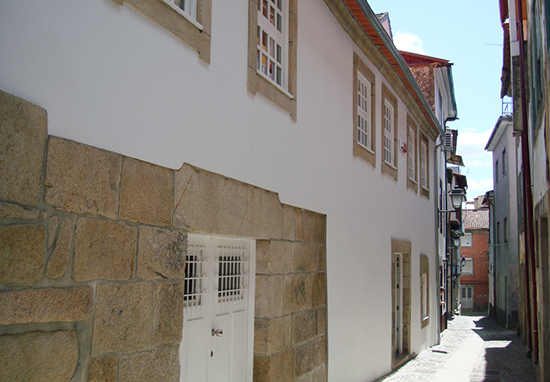 CEJTM was officially established in 2002, although an informal group of citizens of different nationalities, creeds and professions had been meeting in Chaves since 1998 under the core theme of Judaism in Trás-os-Montes and the mechanisms to preserve its memory throughout the ages.
CEJTM was officially established in 2002, although an informal group of citizens of different nationalities, creeds and professions had been meeting in Chaves since 1998 under the core theme of Judaism in Trás-os-Montes and the mechanisms to preserve its memory throughout the ages.
Upon its establishment it was assumed that the memory of the Jewish People's history plays a fundamental role in the construction of its identity. It is no coincidence that the pages of the Torah are filled with verbs in the imperative that guide and stimulate remembrance. The relationship with the past in Judaism is related to its meaning and legacy, and is not a mere record of events in itself.
Accordingly, memory plays a crucial role in giving meaning to history. It also fuses elements of Israel's identity and faith. Thus, Jewish rituals work like memorials intended to keep memory alive throughout the generations and have survived to this day. The Hebrew expression zikkarôn is defined as an object or act which reminds one of something, or represents something. As such, it can be a "memorial," a "remembrance," an "historical record," or a physical "souvenir" which triggers remembrance. This word was and is also the thread that brought us to 2017. Recovering and preserving the memory, the Zikkarôn.
Between 2002 and 2006 CEJTM operated from the municipal building located at Rua Júlio Martins, 7, in Chaves, Portugal. It offered a vast cultural and educational annual plan including learning Hebrew to a group of about 20 interested people with the support of USAF (Chaves Rotary University for Seniors), our partner. History of Jewish Art was also taught for three school years.
Between 2002-2006 CEJTM chose to limit the objects of investigation and initially tried to carry out a systematized general overview of what had been studied so far in the Jewish context of the region. The second planned and achieved step was to disseminate it among the general public inside and outside Trás-os-Montes through events, workshops, exhibitions, conferences, colloquia and other means. This process directly brought about 7000 people to the municipality of Chaves and the region in general, and there were numerous participations of members of the Center in public events organized by the municipalities of Lisbon and Oporto as well as in Israel, Brazil, France, Spain and the USA. Both national and foreign media coverage was excellent, extensive and continued in writing, digital, TV and radio.
We have always been strongly supported by the Israeli Ministry of Foreign Affairs, as well as the Portuguese tourist and cultural authorities which granted us the status of "entity of higher cultural interest" in 2003, and the municipalities of Lisbon and Oporto.
In this period we counted on three technicians from the Chaves City Hall and the magnificent support of Major Antero Afonso, Prof. Dr. Judith Cohen, Paulo Ranito, Dr. Pimenta de Castro, among others in the collection of material and immaterial remains of the Jewish presence in 101 villages of the Chaves municipality and in places of notorious Jewish incidence like Rebordelo, Argozelo, Lebução. The intersection between the purpose of investigating the mechanisms of preservation of Jewish memory and the cultural relevance that such narrative has for Jews and the general public was a concern. In the course of this process, we realized there is still a very rich gastronomic, personal and collective, Jewish history and memory, ritual and conscience "zikkarôn". Historian Mircea Eliade discusses issues relating to time according to traditional societies, that is, "all societies up to the modern world" (Eliade 1969: 91). Taking this aspect as a reference we tried to - understand the reason why in the history of the Jews from Trás-os-Montes some things must be remembered and others not; - understand which paradigm defines what should be reminded to each generation; - understand the mechanisms of preservation of the Jewish memory; - and assess the importance of such preservation for the new generations.

Gastronomic research:
The primary source for analysis was the collection of oral testimonies of recipes, traditions, laws and rituals related to food preparation in the above-mentioned region and places. Several authors and books on food were checked and studied beginning with a first approach and then a deeper one in order to develop the research. At the second stage we inferred from previous readings that memory fuses elements of the identity and faith of Israel, and from there we selected material relating to the Feasts of the Torah, as evidence of this conception. As an example, every time that Easter is celebrated, an archetype is repeated, that is, an exemplary model is followed. Thus, the same way that the ancestors celebrated the Pessar deliverance from Egypt's enslavement, the future generations should do the same, lest they forget that "For with a strong hand the Lord brought thee out of Egypt" (Exodus 13:9). In Trás-os-Montes, this pedagogical function is registered in the DNA, this legacy has not lost its strength in itself although it is in the process of extinction due to external circumstances such as globalization, desertification of the interior and, especially in the villages, aging, etc., a well-known reality.
It is up to us to rescue the past for future generations who will be educated according to the continuous process of this memory preservation. Thus, (and up to 2008) texts in different formats were published by CEJTM such as the book "Jewish flavors from Trás-os-Montes, a magazine on the Kosher Laws in Portuguese and Spanish, as well as short stories based on the oral testimonies collected. Author José Ruy's cartoon book on the story of Aristides de Sousa Mendes was translated into and published in Hebrew as a joint initiative of the Israeli Embassy, CEJTM and the Portugal-Israel Cultural Association. This publication was then offered to YAD VASHEM to be disseminated in schools. Translation of Major Afonso's book on the Rebordelo Manuscript is underway. Two documentaries were made in 2008 resulting from all this work, one for an Israeli channel and the other one for Portuguese RTP 2.
Three courses/ workshops were held on kashrut and Sephardic gastronomy for lay people and professionals with the support of several entities. Children's Gastronomic Days were also held with the support of the Ministry for Education and several Portuguese municipalities as part of the "Chefs for Peace" project at the Lisbon and Oporto Sheraton Hotels.
Last but not least in this summary, CEJTM brought to Chaves the Inter-Ajuda pilot project based on social ideas already implemented in Israel where communitarianism was recovered through systematic chain-aids in response to the needs of populations. EMET Association was founded, a charity that never requested Social Security funds and, among other activities, it established the first Mobile Health Unit in Portugal in 2003. This involvement of the Study Center members in the community has been creating fundamental links aiming motivation and commitment to everyone's participation in this project.
Year 2017 - In view of the enormous success of the Center's activities between 2000 and 2008, the positive changes in the tourism sector in Portugal and the current conditions of transportation, the issue of sustainability should be re-evaluated. In 2017, the necessary conditions for re-launching CEJTM were met, and the project was adapted to the new digital formats of dissemination and new inputs from local research groups and enthusiasts of crypto-Judaism.
We have broadened our scope of action by including items two and three of this summary, which are critical to a project which seeks to be self-sustainable. We maintain the ambitious initial goal of creating an Archive, and this also requires a long-term action that can only be achieved through a network of local and international strategic partnerships.

About Ruth Calvão
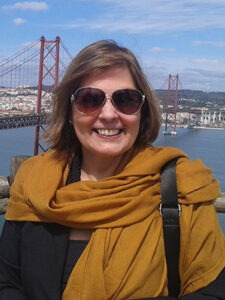
Born in Lisbon, Portugal, Ms. Ruth Calvão started out as a student of anthropology which was a conduit to investigating her curiosity in Jewish traditions and way of life. Ms. Calvao is uniquely qualified as an expert on the subject of Sefarad. Born a Christian, like many of her fellow Conversos, Ruth embarked on a special journey in search of her Jewish identity. Ruth made Aliya and moved to Israel in 1977 where she married and raised children in a Jewish environment.
These days Ruth commutes between Portugal and Israel. Ruth is a founding member and President of the Project Development and Outreach of the Centro de Estudos Judaicos de Trás -os- Montes, Rotas Históricas e Culturais Ibéricas (Center for Jewish Studies in Trás-os-Montes, Iberian Historical and Cultural Routes). Ruth has 35 year hands-on experience coordinating projects and budgets; both with governmental and private organizations, including endless voluntary work during this period. She pioneered many innovative initiatives assisting individual and community how to organize and frame their story using tools such as community theatre and arts to implement social change.
Ruth has extensive experience working with the EU, Israeli Institutions and Government bodies, in both, national and local representatives, NGOs and Philanthropic Institutes in Europe and the Middle East. She is a recognized, and well-respected authority on Jewish history in Portugal and surroundings.

About Filomena Marques
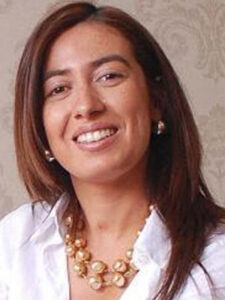 Filomena Marques is VP of Center for Jewish Studies in Trás-os-Montes -- Iberian Historical and Cultural Routes is an entrepreneur, manager and a business consultant who graduated from the University of Lisbon in Educational Sciences, where she worked as a researcher, completing her post-graduate training in Organizational Development at ISEG - Lisbon School of Economics and Management. In recent years she has been working as a university professor in the multimedia and storytelling areas that are the base of the PHD that she is pursuing. As a consultant se implements improvement performance processes in the companies she advises in the areas of strategy and internationalization. Besides teaching and the business activity she has cooperated with cultural and social responsibility projects with particular focus on contemporary art where she stands as a collector.
Filomena Marques is VP of Center for Jewish Studies in Trás-os-Montes -- Iberian Historical and Cultural Routes is an entrepreneur, manager and a business consultant who graduated from the University of Lisbon in Educational Sciences, where she worked as a researcher, completing her post-graduate training in Organizational Development at ISEG - Lisbon School of Economics and Management. In recent years she has been working as a university professor in the multimedia and storytelling areas that are the base of the PHD that she is pursuing. As a consultant se implements improvement performance processes in the companies she advises in the areas of strategy and internationalization. Besides teaching and the business activity she has cooperated with cultural and social responsibility projects with particular focus on contemporary art where she stands as a collector.

About D. André de Quiroga
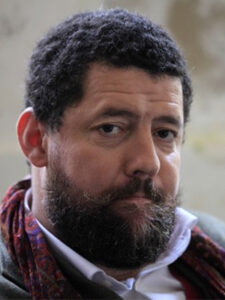 D. André de Quiroga heir to a European aristocratic tradition dating back to the 8th century, with ancestors in Austria, France, Belgium, Italy, Spain and Russia, is the son of a USA citizen, an expat of Portuguese origin that worked at the Voice of America. Bibliophile, gastronome, curator and contemporary art collector, former Rádio Difusão Portuguesa journalist and collaborator with the press in the 90s, has a professional trajectory in sectors like media consultancy, business communication and politics. Consultant for some of the biggest Portuguese companies in the agro-food and construction sectors, he excelled in the organization of electoral campaigns and as an advisor to members of parliament and mayors. He distinguished himself since 2000 organizing international projects that promote a connections between the universes of contemporary art and gastronomy as a platform for touristic promotion and the integrated development of peripheral rural areas.
D. André de Quiroga heir to a European aristocratic tradition dating back to the 8th century, with ancestors in Austria, France, Belgium, Italy, Spain and Russia, is the son of a USA citizen, an expat of Portuguese origin that worked at the Voice of America. Bibliophile, gastronome, curator and contemporary art collector, former Rádio Difusão Portuguesa journalist and collaborator with the press in the 90s, has a professional trajectory in sectors like media consultancy, business communication and politics. Consultant for some of the biggest Portuguese companies in the agro-food and construction sectors, he excelled in the organization of electoral campaigns and as an advisor to members of parliament and mayors. He distinguished himself since 2000 organizing international projects that promote a connections between the universes of contemporary art and gastronomy as a platform for touristic promotion and the integrated development of peripheral rural areas.
About the New Museum
Four Spectacular Wings Tell the Story of the Jewish people
In 2021, after ten years of planning and construction, the museum was relaunched and is now the largest Jewish museum in the world. In 2021 the museum was relaunched. The museums storytelling rather than artifact-exhibit approach was an innovation in its day, and museums worldwide have emulated this model.
The museums storytelling rather than artifact-exhibit approach was an innovation in its day, and museums worldwide have emulated this model. So, come, and join a fascinating journey that portrays the story of the Jewish people through the generations and up to the present time. The Museum represents all parts of the Jewish people and highlights the creative works and cultural riches of a variety of communities in different periods of history. This story is about all of us and each and every one of us is part of it. Enjoy yourselves!
The Mosaic
Identity and Culture in Our Times
The story begins in the present. The incredible diversity of the expressions of Jewish identity and culture enables each and every one of us to find something of ourselves here. The folklore and the arts, the language and the literature, the different denominations in Judaism, and the Jewish contribution to humanity – all these are manifestations of multifaceted Jewish identity and culture, whether individual or collective.
The Journey
The Historical Story Through the Generations
This is the unique and ongoing story of the Jewish people, from ancient times and up to the present. In it, you can find chapters of growth, prosperity and cultural dialog, alongside periods of pogroms and persecutions. The journey, which extends over thousands of years, begins with the story of the Jewish migrations, examines the large centers of Jewish life as well as Jewish culture and scholarship, and ends with the rebirth of the Jewish people after the Holocaust, the establishment of the State of Israel, and a depiction of various Jewish communities in our times.
The Foundations
A Common Base, A Universal Message100
The ideological foundations on which Jewish existence has been built over the years – are foundations which have both a particular-Jewish dimension as well as a general-universal dimension that has bearing on human civilization as a whole. The unique foundations include the Sabbath (Shabbat), the covenant, the cycle of the year and milestones in human life. The universal foundations are exemplified by the Bible and its impact on cultures around the world.

Caminos De Sefarad
The Red de Juderías de España, Caminos de Sefarad
Welcome to the Red de Juderías de España
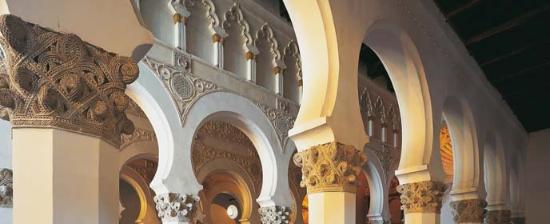 The Red de Juderías de España, Caminos de Sefarad, is a network of Jewish Quarters that once thrived in ancient Spain. Jewish history in Spain dates to biblical times. Some associate the country of Tarshish with a locale in southern Spain. More substantial evidence of Jews in Spain goes back to the time of the Romans (2nd Century C.E.), and by the Middle Ages, Spain was the center of the Jewish world.
The Red de Juderías de España, Caminos de Sefarad, is a network of Jewish Quarters that once thrived in ancient Spain. Jewish history in Spain dates to biblical times. Some associate the country of Tarshish with a locale in southern Spain. More substantial evidence of Jews in Spain goes back to the time of the Romans (2nd Century C.E.), and by the Middle Ages, Spain was the center of the Jewish world.
In the 8th century, the Berber Muslims (Moors) conquered much of the Iberian Peninsula. This ushered in the “Golden Age” when Jews were generally accepted and Jewish religious, cultural, and economic life was at its best. The Jewish communities flourished in business and in the fields of astronomy, philosophy, math, science, medicine, and religious study. The same period also witnessed a resurgence of Hebrew poetry and literature from a traditional and liturgical language to a living language able to be used to describe everyday life. Among the early Hebraists of the time were Yehudah HaLevi who became known as one of the first great Hebrew poets, and Menahem ben Saruq who compiled the first ever Hebrew dictionary.
The Golden Age of Spain came to a terrible end at the period of the Reconquista when Christian Spain began to recapture territory from the Moors. As the Christians reconquered Spain, a dark cloud gradually spread over Jewish society. Jews were increasingly subjected to religious intolerance: they were forced to live in ghettos (juderías), prohibited from practicing many professions, and were victims of pogroms, blood libels and forced conversions culminating in the expulsion order of 1492.
The Red de Juderías de España, Caminos de Sefarad assembled a network of Jewish quarters in Spain offering a journey in time through Jewish Spain. The Routes of Sefarad are a suggested journey through the most notable Jewish quarters. The Network of Jewish quarters in Spain offers the traveler an abundance of information.
Network of Spanish Jewish Quarters - Routes of Sefarad
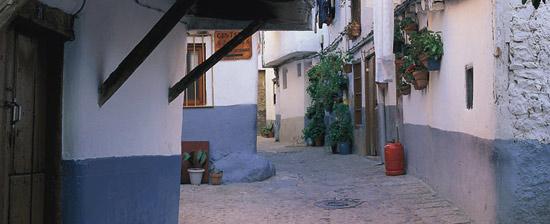 The members of the Network act jointly in defense of the historical heritage and Jewish legacy promoting cultural, tourist and academic projects and carrying out a policy of exchange of national and international experiences that contribute to the mutual knowledge and respect of peoples, cultures and traditions.
The members of the Network act jointly in defense of the historical heritage and Jewish legacy promoting cultural, tourist and academic projects and carrying out a policy of exchange of national and international experiences that contribute to the mutual knowledge and respect of peoples, cultures and traditions.
Ávila, Barcelona, Cáceres, Calahorra, Córdoba, Estella-Lizarra, Hervás, Jaén, León, Lucena, Monforte de Lemos, Oviedo, Plasencia, Ribadavia, Segovia, Tarazona, Toledo and Tudela have been recovering their jewelries for 20 years, investing time and resources in the rehabilitation of houses, streets, palaces and how many buildings can be saved from oblivion and recover the knowledge of the lives of Jewish families of all backgrounds and conditions. Hidden story revealed after five hundred thirty years now recovered.
The footprint of the Jews in Spain extends over a thousand years. Explore their stories in the cities of the Juderías Network and do your own searches with our interactive map and schedule.
Thanks to Google technology, visitors can explore layers of information about maps and schedules about Jewish history, culture and heritage on the peninsula in a unique web environment on the Internet. Caminos de Sefarad offers an interactive experience about the historical wealth and tangible and intangible Sephardic heritage of the member cities of the Network.
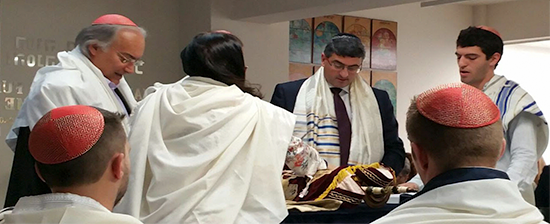 Barcelona, the cosmopolitan capital of Spain’s Catalonia region and the second largest city in Spain, a city known for its art and architecture. The Jews of Barcelona trace their history back to the 9th Century. Towns and villages in the surrounding rural areas became home to many Jewish communities throughout the centuries. The cities of Girona and Barcelona evolved into the most famous centers of Jewish learning under the guidance of the Chachmei Sepharad such as the Rambam and the Rashba, Hasdai Crescas. Jews of the region became influential as doctors, philosophers, merchants, moneylenders and craftsmen.
Barcelona, the cosmopolitan capital of Spain’s Catalonia region and the second largest city in Spain, a city known for its art and architecture. The Jews of Barcelona trace their history back to the 9th Century. Towns and villages in the surrounding rural areas became home to many Jewish communities throughout the centuries. The cities of Girona and Barcelona evolved into the most famous centers of Jewish learning under the guidance of the Chachmei Sepharad such as the Rambam and the Rashba, Hasdai Crescas. Jews of the region became influential as doctors, philosophers, merchants, moneylenders and craftsmen.
In its heyday Spanish Jewry was one of the largest, most prosperous and cultivated Jewish communities in the world. Despite centuries of unrivaled Jewish success, this “Golden Age” came to an end with pogrom and massacre of 1391, one of the Middle Ages' largest attacks on the Jews, who were ultimately expelled from the in 1492 with the promulgation of the “Alhambra Decree,” which presented the Jews with the options of conversion to Catholicism, exile or death. The Jewish community of Barcelona could not recover and by the end of the century the last few families move to other cities.
Sephardi and Askenazi Jews start moving to Spain at the onset of the 20th century. They arrived from Eastern Europe, Turkey (the old Ottoman Empire) and during WWII and from Morocco. From 1976 through the 90’s we see a revival of the Jewish population in Spain when a group of young adults, including locals and immigrants from South America decided to develop egalitarian-style Judaism bringing about the ATID Congregation established in 1992 promoting Jewish life and its cultural, educational, social and religious values. ATID welcomes those who explore returning to their Jewish roots. Since its creation, ATID was committed to promoting Jewish life both in Barcelona and throughout Spain, offering religious services and a wide range of activities to interested Jews and the public at large with interest in Jewish Culture.
This community continues to grow on the basis that leadership will be passed on to the younger generations and promoting members of the community to take new roles based on equality and respect for diversity.

Porto Jewish Community
Porto Jewish Community
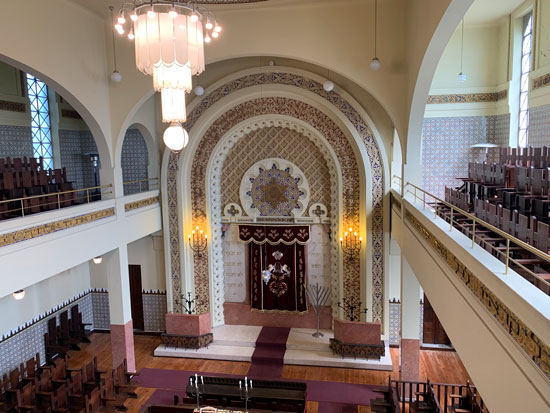 The contribution of Portuguese Jews to world history is enormous and its history is inseparable from the Jewish presence in Portugal between the 5th and the 15th centuries. In the northern region of the country are villages, cities and small towns where important Jewish communities once thrived. It would be difficult to trace the first arrival of Jews in Porto. We do know that there were Jews in Porto during the High Medieval Ages. Although Porto tolerated its Jewish community and even tried to protect it for many years, the expulsion of the Jews from the country following the infamous Inquisition destroyed its Jewish Heritage.
The contribution of Portuguese Jews to world history is enormous and its history is inseparable from the Jewish presence in Portugal between the 5th and the 15th centuries. In the northern region of the country are villages, cities and small towns where important Jewish communities once thrived. It would be difficult to trace the first arrival of Jews in Porto. We do know that there were Jews in Porto during the High Medieval Ages. Although Porto tolerated its Jewish community and even tried to protect it for many years, the expulsion of the Jews from the country following the infamous Inquisition destroyed its Jewish Heritage.
Porto is Portugal's second largest city, home to one of the oldest Jewish communities in the country that was spared by the earthquake of 1755 that destroyed much of Lisbon but left Porto intact, including the streets of the former Jewish quarter, narrow streets and balconied houses, with street names such as "Rua Monte Judeus," "Escadinhas do Monte dos Judeus," and Pátio das Escadinhas do Monte dos Judeus." The main synagogue stood on the Escadas da Vitória, a place still locally called "Escadas da Esnoga," meaning "stairway to the synagogue." There is a plaque that marks this site.
Nearby, there is an ancient Jewish cemetery at Passeio das Virtudes. It was there that the largest numbers of Conversos (also known as Marranos), descendants of Jews forced to convert to Christianity during the Inquisition but secretly practicing Judaism, lived Porto's first synagogue stood in what is today known as Rua de Santana and, as the city developed, the Jewish community spread towards the river. Walk along that route and go to Praça da Ribeira and its adjacent streets where, in those days, the important Jews lived: physicists, goldsmiths, great merchants. If you need to regain your strength, relax at one of the esplanades facing the river and see the D. Luís I Bridge and the landscape of the warehouses and Port wine cellars on the south bank of the Douro River.
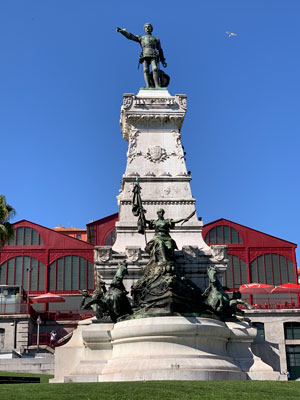 Located in the civil parish of Lordelo do Ouro e Massarelos, the municipality of Porto the Kadoorie Mekor Haim Synagogue serves the Jewish community of Porto. The "Kadoorie" synagogue was built on property bought and donated by Baron Edmond de Rothschild of Paris.
Located in the civil parish of Lordelo do Ouro e Massarelos, the municipality of Porto the Kadoorie Mekor Haim Synagogue serves the Jewish community of Porto. The "Kadoorie" synagogue was built on property bought and donated by Baron Edmond de Rothschild of Paris.
In the 1920s, Captain Arthur Carlos de Barros Basto, a decorated Portuguese WW1 veteran who survived gas attacks in Flanders, began a quasi-messianic movement in northern Portugal to "out" Marranos and bring them back to Judaism. Basto, a free mason and Republican was informed of his family's Marrano heritage by his grandfather who announced on his deathbed that he wished to die as a Jew. Basto honored his grandfather's message for the rest of his life. He taught himself Hebrew, becoming so proficient that he later taught it at the faculty of Arts at the University of Porto where he also conducted original research into Portuguese medieval Jewish history. Basto eventually underwent a conversion to Judaism. Returning to Lisbon, he married the daughter of a prominent Jewish family of that community which initially had rejected him. He then settled down in Porto, near Amarante, his place of birth, to raise a family and start his building his dream. Visiting isolated villages and towns, sometime by foot and donkey, the charismatic Captain, dressed in full regalia, convinced thousands of Marranos to give up their syncretism and return openly to the faith of their ancestors. He led the revival of normative rituals and established synagogues in several towns and cities, despite protests from the Catholic Church.
False charges were brought against the Captain and he was court-martialed, stripped of his rank. But he left behind a small community almost entirely descended from Conversos and the magnificent Kadoorie Synagogue, the largest active synagogue in Iberia.
Jewish community of Lisbon
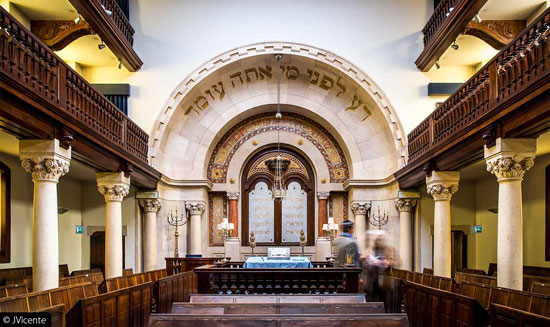 The Jewish presence in the Iberian Peninsula has existed long before Portugal itself became a country. The contribution of Portuguese Jews to the arts, philosophy, commerce and sciences helped create this nation’s rich cultural heritage. Portugal’s Jewish community, with a cultural and religious legacy dating back to antiquity.
The Jewish presence in the Iberian Peninsula has existed long before Portugal itself became a country. The contribution of Portuguese Jews to the arts, philosophy, commerce and sciences helped create this nation’s rich cultural heritage. Portugal’s Jewish community, with a cultural and religious legacy dating back to antiquity.
The center of the Lisbon Jewish Community is the historical Shaare Tikvah (Doors of Hope) Synagogue, inaugurated in 1904 and located in the civil parish of Santo António, in the municipality of Lisbon.
The current Hebrew community of Lisbon originates from the groups of Sephardic Jews who settled in Portugal in the beginning of the 19th century. These were mostly marketers, from Gibraltar and Morocco (Tangier, Tetouan and Mogador) and some of their names still expressed the connection with their places of origin in the Iberian Peninsula, before the expulsion period.
Such is the case of Conqui (from Cuenca, Cuenca Province) or Cardoso (from Cardoso, district of Viseu). They were people with an above average cultural level, knowing how to read , write and speak beyond the liturgical Hebrew, Arabic or English, including the Haketia, Jewish-Hispanic-Moroccan dialect. They were internationally networked due to their commercial activities, as well as family ties worldwide. These factors explain the fast economic and cultural growth both Jews from Lisbon and of the groups that were installing in Faro and Azores in that first half of the 19th century.

Ashley Perry (Perez)
Reconectar Founder & President
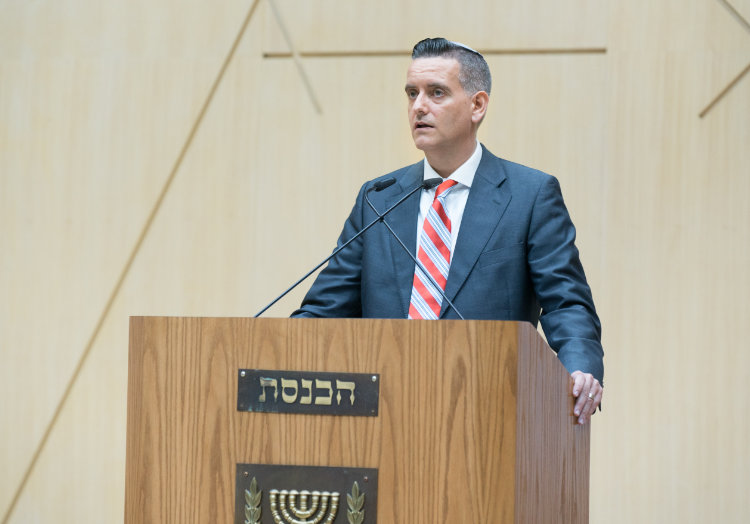
VISION STATEMENT
Around the early part of the last millennium, almost 90% of world Jewry lived in the Iberian Peninsula, a community which led to some of the greatest figures of Jewish history. As a result of forced conversions, expulsions and persecution by The Inquisition, many hundreds of thousands of Jews were brutally and forcibly cut off from their people, many escaping to the Americas.
These Bnei Anusim, (lit. “Children [of the] coerced [converted] Spanish [Jews]), are the contemporary descendants of those Jews who were forcibly converted beginning in the 14th Century. After the forced or coerced conversions of their Sephardic Jewish ancestors, a group of descendants of Jews from Spain and Portugal remained ever since as Crypto-Jews (Jews in secret). They needed to remain in secret because of the gestapo-like presence for the proceeding centuries of The Inquisition which would watch every facet of the Anusim’s life for secret ‘Judaizing’ which would in turn frequently result in unspeakable torture with the possibility of being burnt alive at the stake, sometimes along with other members of the family.
Due to the almost impossibility of escape or flight, the Anusim had not been able to return to the Jewish people over the last five centuries, although increasing numbers have begun emerging publicly in modern times, especially over the last two decades. Many remarkably still adhere to Jewish customs and traditions which had been retained as family traditions, frequently in secret, like lighting Shabbat candles, not eating bread around Pesach and not mixing meat and milk, to give just three of many examples.
Today’s technology, chiefly, internet, genealogy and DNA advances have generated massive interest in discovering Jewish roots. Many are undertaking simple Google searches which demonstrate that their definitive family customs are indicative of Jewish ties.
Thousands are discovering their Jewish roots all the time and would like to reconnect with the Jewish People.
OUR MISSION
Reconectar’s mission is to help and assist those who wish to reconnect by giving them the personalized tools do so according to their individual requests and requirements.We also give organizations, communities and individuals the opportunity to assist in this long-overdue reconnection.
Those who wish to reconnect will be provided with information and support. Registration at the website is a symbolic act and does not constitute any formal recognition by any government, Jewish organizational institutions or rabbinical courts.
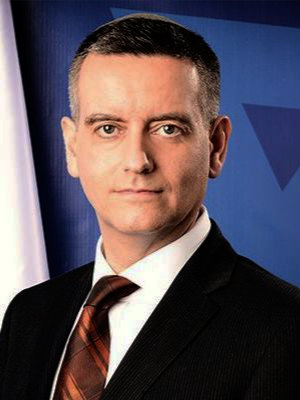 ABOUT THE FOUNDER AND PRESIDENT OF RECONECTAR
ABOUT THE FOUNDER AND PRESIDENT OF RECONECTAR
Ashley Perry (Perez) is from the Spanish and Portuguese (Sephardic) Jewish community. Brought up in London from one of the oldest Jewish families in the UK, Perry made Aliyah (immigrated) to Israel in 2001.
He was adviser to Israel’s Minister of Foreign Affairs and Deputy Prime Minister from April 2009 until May 2015.
Perry also worked with Israel’s Ministers of Tourism, National Infrastructure and Water, Agriculture, Internal Security, Immigrant Absorption and the Deputy Ministers of the Interior and Foreign Affairs, as well as with the Chairman of the Knesset Foreign Affairs and Defense Committee and in the Prime Minister’s Office.
He has also worked as a strategic consultant and public relations adviser to many Israeli, Jewish and international organizations and companies in a host of areas.
He holds a BA Honors in History from University College London (UK) and an MA in Government from the IDC Herzliya (Israel).
Perry is also Director-General of the official Knesset Caucus for the Reconnection with the Descendants of Spanish and Portuguese Jewish Communities.
Combat Anti-Semitism
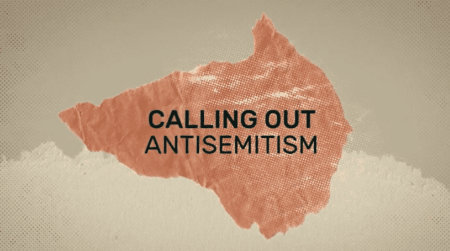 Combat Anti-Semitism (CAS) is a non-partisan, global grassroots movement of individuals and organizations, across all religions and faiths, united around the goal of ending anti-Semitism. CAS supports and highlights the work of its many partner organizations and the efforts of governments and other bodies trying to fight anti-Semitism around the world.
Combat Anti-Semitism (CAS) is a non-partisan, global grassroots movement of individuals and organizations, across all religions and faiths, united around the goal of ending anti-Semitism. CAS supports and highlights the work of its many partner organizations and the efforts of governments and other bodies trying to fight anti-Semitism around the world.
Through its programs, CAS attempts to educate about anti-Semitism, report on its various manifestations, give a platform for people to tell their personal stories, thank those making a difference, and most of all, activate people to make a difference with unique campaigns initiated by CAS and those of its partners.
CAS recognizes anti-Semitism on all sides of the ideological spectrum, including the effort to deny the Jewish people their right to self-determination in their ancestral homeland, Israel and to delegitimize the profound historic, religious, and ethnic connection of the Jewish people to Israel, an integral pillar of Jewish identity.
Since its launching in February 2019, over 210 organizations and 190,000 individuals have joined the movement by signing our campaign’s pledge. The CAS Pledge draws upon the IHRA international definition of anti-Semitism and its list of specific behaviors used to discriminate against the Jewish people and the Jewish State of Israel.
The movement was launched by several individuals with the support and encouragement of its many partner organizations. The movement is intended to be non-partisan. Individuals and organizations from all backgrounds and interests passionate about eradicating anti-Semitism in the world are encouraged to join the campaign.
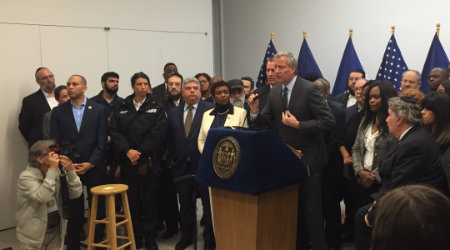
There is no financial requirement for an organization to join the coalition. All we request is a high-resolution logo and an effort to inform your membership about the campaign to help us grow the people involved in our movement. One of the main goals of the movement is to help enhance the important work of the many organizations in this country and around the world, engaged in the fight against anti-Semitism.
Humanity flourishes when religious, ethnic, and cultural diversity is respected and we hope to encourage understanding and set an example through our work. Anti-Semitism is the oldest form of bigotry and by working to eliminate it, we hope tragedies like the holocaust or any incidents of hate inspired speech or violence perpetrated against the Jewish people, Israel, or any discriminated group are reduced significantly.
Please contact us if you are interested to join the Movement at: [email protected]

Foundation for Jewish Heritage
Mission
The Jewish people have produced a vast cultural heritage; a remarkable visual chronicle across the ages. It is an irreplaceable inheritance, a precious legacy for those to come – and it is in danger.
The Foundation for Jewish Heritage is dedicated exclusively to the preservation of Jewish architectural sites, working internationally to ensure a future for historic synagogues, Jewish monuments and places of cultural significance.
Mapping the Historic Synagogues of Europe
The Foundation commissioned unprecedented research, undertaken by the Center for Jewish Art of the Hebrew University of Jerusalem, to create an inventory of the historic synagogues that exist today across the whole of Europe, categorizing each synagogue building according to its (i) significance and (ii) condition.
The research identified over 3,300 sites, of which under a quarter are currently functioning synagogues.
This mapping was undertaken to enable the Foundation to be comprehensive and strategic in its approach to its preservation agenda, with the ability to identify which are the most important synagogue sites most at risk, and it is now working to help save and bring back into meaningful use a prioritized number.
SAMPLE PROJECTS
Medieval Synagogue in Hijar Spain
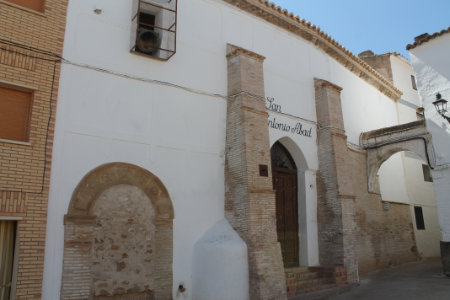 In the medieval period, there was a significant Jewish community in Hijar in Aragon which pioneered the early Hebrew printing press.
In the medieval period, there was a significant Jewish community in Hijar in Aragon which pioneered the early Hebrew printing press.
With the expulsion of the Jewish community in 1492, the main synagogue in the former Jewish quarter of Hijar was taken over by the Church becoming the Church of San Anton de Hijar. In recent years, there has been growing interest in the Sephardic heritage in Aragon and the Government of Aragon has been developing a Strategic Plan "Aragon Sefarad: legado y memoria", which aims at recovering the material and immaterial heritage of around 30 former Jewish quarters in the region.
As a result, attention is once again being paid to the former synagogue building in Hijar which represents the only example of a synagogue archaeologically remaining anywhere in Aragon.
The Challenge
The building is owned by the Archbishopry of the Zaragoza Church. However, because it is not the main Church in Hijar, it is only used for services once a year and as a result has been poorly maintained. There was a recent partial collapse of the roof which has accelerated its deterioration.
Subsequent works were carried out to prevent further damage and the building was recently recognised formally as a Site of Cultural Importance (Bien de Interés Cultural) so the efforts of stabilisation are being monitored. However, there are no moves towards undertaking a full restoration of the monument, nor any strategy for its future use.
The Plan
In 2017, an archaeological excavation was carried out in the Church of San Anton. As a result, various elements belonging to the ancient synagogue from the fifteenth century have been documented, including the remains of the bimah. These findings constitute extraordinary material testimony of the Spanish synagogues that existed in the medieval period.
The plan is to conduct further documentary study and archaeological research to fully establish what remains from the original synagogue.
Given the Aragon Government initiative to recover the lost heritage of its once Jewish community, the longer term plan is that the building be taken over by the town of Hijar and used as an educational and tourist hub for the developing programme on the Sephardic heritage of the region.
Etz Hayim Synagogue in Izmir Turkey
 The Etz Hayim Synagogue is an ancient building – the oldest synagogue in Izmir (formerly Smyrna) - that dates back to the time of the Romaniot Jews who settled in Asia Minor during the Byzantine period. It was later rebuilt by Sephardic Jews who had been expelled from Spain and were welcomed by the Ottoman Empire.
The Etz Hayim Synagogue is an ancient building – the oldest synagogue in Izmir (formerly Smyrna) - that dates back to the time of the Romaniot Jews who settled in Asia Minor during the Byzantine period. It was later rebuilt by Sephardic Jews who had been expelled from Spain and were welcomed by the Ottoman Empire.
The Etz Hayim therefore is a mix of architectural styles including both Spanish and Ottoman elements and this mixing is also reflected in the impressive frescoes that are another special feature of the building added over the centuries. This confluence of influences that the building represents is unique to Izmir.
The synagogue forms part of a group of nine historic Synagogues; a unique complex in the old city of Izmir which is itself a designated conservation zone.
The Challenge
The problems faced by the Etz Hayim Synagogue are ones of decay over time, past city-wide disasters including fires and earthquakes, and a declining Jewish community that lacks the means to maintain the building. At one point, the building’s very future was in doubt, but urgent works have been carried out to repair the roof and stabilise the floor that was sinking. However, the building remains in a precarious situation.
The Plan
The project to restore the Etz Haim synagogue is part of a larger effort to save all the historic synagogues of the old quarter being led by the Israeli-based Kiriaty Foundation, working in cooperation with the Izmir Municipality, the Jewish community of Izmir, and the Ministry of Culture and Tourism of Turkey.
The vision is to save the Etz Haim and integrate the site into a wider presentation of all the synagogues in the Old Quarter of Izmir turning the whole complex into a unique Jewish Museum that will make the buildings available to a wider public and tell the story of the Jews of the region, its history, values and traditions and the distinct Sephardi heritage that was introduced in the 15th century. A further key aspect will be to present - and celebrate - the story of co-existence that has been a feature of Jewish-Muslim relations in the region, the intercultural influences and shared values, and the contribution that the Jewish community has made.
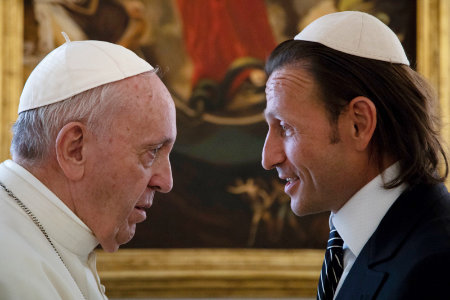 Fundación HispanoJudía exists to represent an accurate, compelling, and transformative introduction to Sephardic history and modern-day culture. By committing itself to both historic and contemporary exchanges of ideas between Jewish people and their neighbors and colleagues, the foundation works to:
Fundación HispanoJudía exists to represent an accurate, compelling, and transformative introduction to Sephardic history and modern-day culture. By committing itself to both historic and contemporary exchanges of ideas between Jewish people and their neighbors and colleagues, the foundation works to:
- increase awareness of Jewish identity
- foster opportunities for historical and academic exchange
- expand public understanding of the Jewish people across global communities
As a nonprofit organization, Fundación HispanoJudía was created to build bridges, promote knowledge, and strengthen the relationship of the Spanish-speaking world. Its signature initiative is the establishment of a world-class museum and cultural center in Madrid that is dedicated to empowering modern Spain to expand their conception of “Spain’s Jewish culture.” The foundation is developing content that recognizes and celebrates the role Jews played in Spanish, European, Latin American, and North American culture, and is promoting intercultural dialogue and the exchange of cultural diversity.
Committed to creating an environment that will invite people of diverse backgrounds to gather and learn, Fundación HispanoJudía proudly presents Museo HispanoJudío.
The long and varied history of Sephardic Jewry is often flattened into its most notorious rupture—the expulsion of practicing Jews in Spain in 1492—once home to the largest Jewish community in the world. The significance of the expulsion cannot be overstated, nor can its severe consequences both for the Sephardim who fled and for the countries they left behind. However, the expulsion does not present the whole of history.
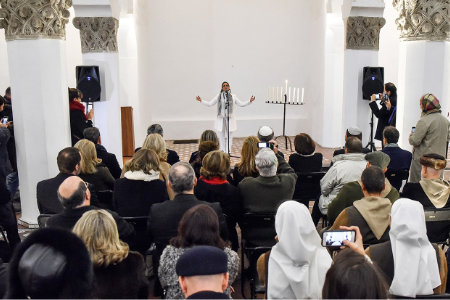 To tell this story, Museo HispanoJudío will open to the public in 2023 to showcase the legacy of Sefarad, both as a nation and across the Diaspora, helping visitors understand the lives Jews lived, the challenges they faced, the triumphs they celebrated, and the losses they bore. By featuring Jews who lived before the Inquisition; La Convivencia, when Jews, Christians and Muslims lived in peace; the journey of exiled Sephardim and the exploration of Jewish communities across the Ottoman Empire, North Africa and the New World (using interactive films to trace migration of the Jews of Sefard); the impact of war (before, during and after World War II); and the right to citizenship and return after 500 years of hiding and banishment, Museo HispanoJudío will empower audiences from around the world to recapture the “before” and the “after,” and to navigate the enduring legacy of the past in our present-day landscape.
To tell this story, Museo HispanoJudío will open to the public in 2023 to showcase the legacy of Sefarad, both as a nation and across the Diaspora, helping visitors understand the lives Jews lived, the challenges they faced, the triumphs they celebrated, and the losses they bore. By featuring Jews who lived before the Inquisition; La Convivencia, when Jews, Christians and Muslims lived in peace; the journey of exiled Sephardim and the exploration of Jewish communities across the Ottoman Empire, North Africa and the New World (using interactive films to trace migration of the Jews of Sefard); the impact of war (before, during and after World War II); and the right to citizenship and return after 500 years of hiding and banishment, Museo HispanoJudío will empower audiences from around the world to recapture the “before” and the “after,” and to navigate the enduring legacy of the past in our present-day landscape.
This high-tech museum will at once serve an onsite community and a global online audience—designed to enhance the ways in which visitors can interact with history and understand important Sephardic contributions in philosophy, theology, music, language, arts, and sciences across Spanish-speaking cultures. By introducing a virtual-first experience, the museum will future-proof its concept through online engagement, and present visitors with a presentation that is based on the future of storytelling and knowledge sharing. Specialized display technologies and immersive experiences will illuminate historical case studies and invite visitors to offer personal reflections as they take a 4,000-year journey through the museum’s core exhibition.

Institute of Jewish Experience
The American Sephardi Federation’s Institute of Jewish Experience (ASF IJE) is an educational initiative designed to revitalize the Jewish intellectual and cultural legacy. In an Ashke-centric Jewish world, we raise awareness, knowledge and respect for the centuries-long traditions and customs of Sephardi, Mizrahi, and other Jewish cultures. From the Geonim of Baghdad to the philosopher poets and scientists of al-Andalus, the Hachamim of Halab, the Kessim of Ethiopia, and the scholars and dancers of Salonika and Sana’a, the Jewish experience is a rich mosaic with tiles of many shapes. ASF IJE is dedicated to ensuring that today’s Jews know their history, appreciate the diversity of the Jewish People, and have a sense of pride for one’s own cultural heritage.
Our mission is to create a world of mutual respect and collaboration between the diverse Jewish communities.
We do so through multi-disciplinary and multi-generational formal and informal education and outreach. Our programs present the world’s leading scholars and represent the best that is being thought and written on our topics.
- Semester-long online courses (MOOCs) for continuing learners focusing on less studied aspects of Jewish history, customs, culture and arts (https://www.youtube.com/watch?v=VBifgIwtGQI)
- Yearly academic conference focusing on a particular Jewish heritage (https://www.youtube.com/watch?v=_jOD_oVMirY)
- Year-round programs at New York’s landmark Center for Jewish History
- Short informational clips and teacher materials supplementing standard Jewish curricula in Jewish middle and high schools (https://youtu.be/38q-TCV9clM)
Welcome to Jewish Majorca
DISCOVER THE HIDDEN JEWISH HISTORY
OF MAJORCA ISLAND
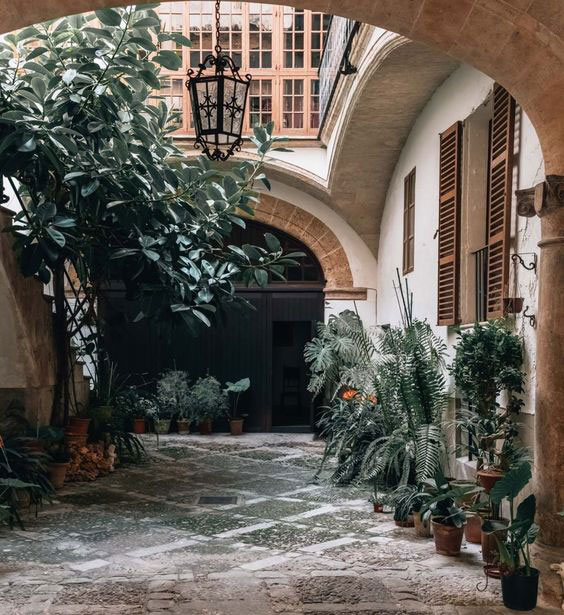 During the Inquisition, the Crypto-Jews or Chuetas publicly professed Catholicism while privately adhering to Judaism. Synagogues were secretly built in private homes. Signs of this “secret” community can still be found today with many of the current jewelry shops having been kept within their families for generations beforehand.
During the Inquisition, the Crypto-Jews or Chuetas publicly professed Catholicism while privately adhering to Judaism. Synagogues were secretly built in private homes. Signs of this “secret” community can still be found today with many of the current jewelry shops having been kept within their families for generations beforehand.
JEWISH MAJORCA:
Vision - “We believe passionately in the power of history-telling to change attitudes, inspire connections, and revive the cultural diversity of Majorca”
Mission - “Offer an interactive learning experience that engages both visitors and residents alike and sparks further curiosity.”
Goals -
Connect people through their Jewish heritage
Fight discrimination and antisemitism
Combat ignorance through education
Creating connections via open dialogue
Affect change of treating people differently
Continue learning
Preserve and honor the Xueta memory
Create a Memorial Day for the Xuetas (Accomplished March 2020)
Projects:
*Jewish heritage routes around the island with plans of developing all over Spain & Portugal
*Virtual Reality / 360 Tours
*Video Virtual Tours
*Seminars, Workshops, Cultural & Gastronomic Experiences for groups and conferences
*Working with partners to revive Jewish heritage and legacy all throughout Sefarad
LIMUD MALLORCA:
We see Limud Mallorca as an engine that continues to help grow the Jewish community on the island. This Spanish-speaking community with a special emphasis on Sephardic culture has long awaited this change. For starters, since Limud Mallorca 2018 the community has seen many positive changes including, a change of president and board in the local synagogue to include more open and accepting leaders. Sharing Shabbat dinners in each other’s homes (which was not common practice previously), free Hebrew classes are now offered once a week and a new Sunday school for children has just opened, as well as the creation of a Jewish Majorca specific tour through Palma and other parts of the island. Inspired by Limud, we still hope to launch a Jewish film series, Jewish cooking classes, book clubs, a hiking club, and opportunities to celebrate the current modern Jewish diversity on the island.
Projects:
Once a month community shabbat dinner
*Working with City Hall of Palma to plan and organize activities for Jewish Culture Month in September every year
*Two main Jewish learning conferences each year
*Creation and direction of Limmud Mediterranean - involving countries Portugal, Morocco, France, Italy, Greece, Turkey and Israel
*Production of a Documentary detailing the past, present, and future of Jewish, Converso and Chueta communities on the island
*Partnering with Palma's City Hall Department of Education to go into public schools and teach Holocaust memory and education
*Partnering with Palma’s City Hall Department of Education to offer public school field trips to tour Palma’s Jewish Quarter and learn about native Converso & Chueta history
Links:
BBC Article
https://www.bbc.com/news/stories-49374489
Chueta Documentary Pitch Video
https://www.youtube.com/watch?v=HX7vMn895e8&feature=emb_title
Jewish Majorca Video Virtual Tour Trailer
https://www.youtube.com/watch?v=TcffkNj82II
Jewish Majorca Virtual Tour Offer
https://www.jewishmajorca.com/virtual-tours/
Limud Mallorca 2019 Summary Video
https://vimeo.com/391005430
NEW VIRTUAL TOUR by JEWISH MAJORCA
https://www.youtube.com/watch?time_continue=14&v=TcffkNj82II&feature=emb_logo
Welcome to Jewish Learning Channel
The Jewish Learning Channel has film documentaries about the diversity of human life with a focus on Jewish communities and thought from the United States to Israel. Introduced here by Ron Duncan Hart, Ph.D. director. The JLC is part of the Institute for Tolerance Studies network that supports respect for religious, racial, ethnic, and other differences in human life.
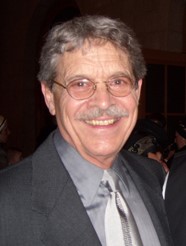
About Ron Duncan Hart:
Ron Duncan Hart, Ph.D. is a cultural anthropologist from Indiana University, an author and filmmaker. He has done postdoctoral work on Jewish history at the Oxford Centre for Hebrew and Jewish Studies, University of Oxford. He is Director of the Institute for Tolerance Studies, and former President of the Jewish Federation of New Mexico.
In the study of Judaism and culture Duncan Hart has done work with David Bidney, Robert Chazan, Jeremy Cohen, and John Messenger among others in folklore and anthropology at Indiana University and later Jewish studies at the University of Oxford.
He has done research on Jewish traditions in South America, Spain, and North Africa with special attention to the Andalusian exchange between Jews, Christians, and Muslims in Spain and Morocco.
Duncan Hart has written books in anthropology and Jewish life with the most recent being:
* Jews and the Arab World: Intertwined Legacies. 2020
* Crypto-Jews: The Long Journey forthcoming.
* Sephardic Jews: History, Religion and People. 2016
* Fractured Faiths: Spanish Judaism, the Inquisition and
New World Identities 2016* Judaism. 2015
He is a former University Vice-President, Dean of Academic Affairs, and department chair, having taught anthropology at Georgia State University, the National University of Colombia, the University of the Andes in Bogotá, and InterAmerican University of Puerto Rico. He also has worked in South America with UNICEF, the Ford Foundation and other international agencies. He has awards from the New Mexico Jewish Historical Society, National Endowment for the Humanities, National Endowment for the Arts, the National Science Foundation, Ford Foundation, and Fulbright among others.
He has been an invited lecturer at
* Neustadt Lecturer on Judaic Studies (Oklahoma City University)
* Schlezinger Lecturer on Jewish legal history (Ohr Kodesh in Chevy Chase)
* National Labor Relations Board
* Tulane University
* Berry College
* Xinjiang University (Urumqi, China)
* National University (Bogotá, Colombia) among others.
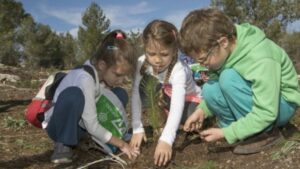 Since 1901, the Jewish National Fund has been working to build and secure the Land and People of Israel to ensure a Jewish homeland for the next generation.
Since 1901, the Jewish National Fund has been working to build and secure the Land and People of Israel to ensure a Jewish homeland for the next generation.
As a division of the Jewish National Fund – USA, JNF Small Communities strategic, long-term vision has been and always will be, to ensure a strong, secure, and prosperous future for the land and people of Israel. Everything we do -- every project, initiative, and campaign we take on – is integral to our vision of building and connecting to our land. We plant trees, build houses and parks, source water solutions, buy fire trucks, and improve the lives of people with special needs. We boost tourism, support Aliyah, promote Zionist education and engagement, build medical centers and trauma centers, fund agricultural and culinary research, and run an American semester abroad high school in Israel. We do all these things because each project, each program, each partnership, is consistent with our strategic vision– population growth in the north and south, connecting the next generation to Israel, infrastructure development, ecology, forestation, heritage preservation, and more -- all for the land and people of Israel.
JNF Small Communities: We want to be your voice in Israel. Join us.

Jewish Heritage Network
Making the cultural heritage of the Jewish people globally visible.
Jewish Heritage Network (JHN) is a non-profit platform of content, projects, and services for Jewish Heritage organisations. We are connecting museums, libraries, archives, and communities from all over the world to facilitate Jewish cultural heritage content and make it accessible to all through innovative solutions.
We are recipients of three major grants of the European Commission that we use to develop a series of innovative services (chatbots, semantic entity-driven search, state-of-the-art aggregation service, more) for Jewish heritage institutions; aggregate a significant amount of Jewish content to Europeana; and develop a new AI-driven recommendation system for curators. Our recent project Yahad.net for virtual Passover 2020 was widely covered, for example here.

Kulanu - All of Us
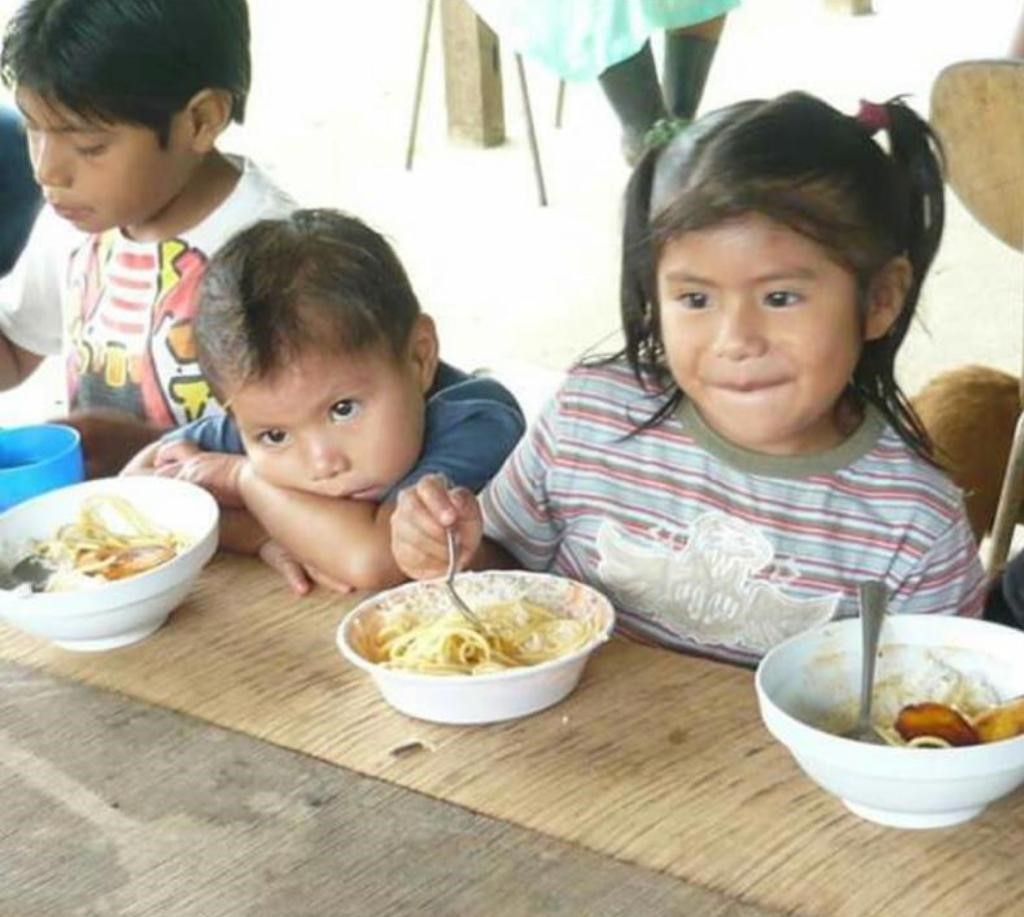
Kulanu means “all of us” in Hebrew. We seek to create an inclusive Jewish world. Founded in 1994, we support isolated, emerging, and returning Jewish communities around the world. Some are discovering Judaism for the first time, others reinvigorating a forgotten practice, but most seek some type of connection with global Jewry.
We raise awareness and support to assist these groups with their desire to learn more about Judaism and connect with Jews beyond their community. The connections we forge – through education, research, networking, fundraising, sustainable development, and publications – help “all of us” to enrich our Jewish lives.
Kulanu work spans the globe reaching out to a diverse audience seeking help in developing Judaism and Jewish way of life. Kulanu has a long history of working with and advocating for Bnei Anusim (Crypto Jewish communities) in Latin America and elsewhere. Please visit our Bnei Anusim resource page on our web page https://kulanu.org/communities/crypto-jews/.
For more information please visit their website at https://kulanu.org/.

The European Jewish Community Centre
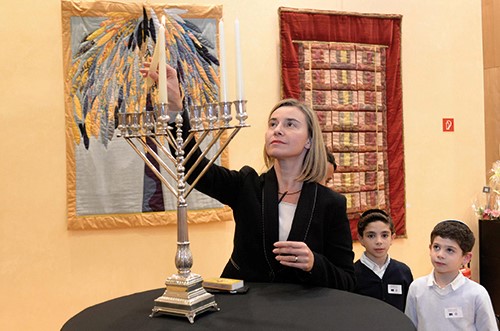 The European Jewish Community Centre, located at the European Jewish Building in the heart of the European Quarter in Brussels, is a focal point for Jewish events, services, and resources at the European Union. The EJCC is a people oriented, community-driven organization dedicated to enhancing the quality of Jewish life through educational and cultural events. The center is multi-lingual, serving the needs of government officials, diplomats, journalists, and consultants to the EU.
The European Jewish Community Centre, located at the European Jewish Building in the heart of the European Quarter in Brussels, is a focal point for Jewish events, services, and resources at the European Union. The EJCC is a people oriented, community-driven organization dedicated to enhancing the quality of Jewish life through educational and cultural events. The center is multi-lingual, serving the needs of government officials, diplomats, journalists, and consultants to the EU.
OUR MISSION
To promote Jewish culture in the European Union and its institutions by creating a dynamic center for anyone interested in Jewish Culture, nourishing a community in all its diversity. To strengthen Jewish identity, nurturing a meaningful Jewish life with an eye on progress, and consistent with today’s world.
STRENGTHENING JEWISH TIES
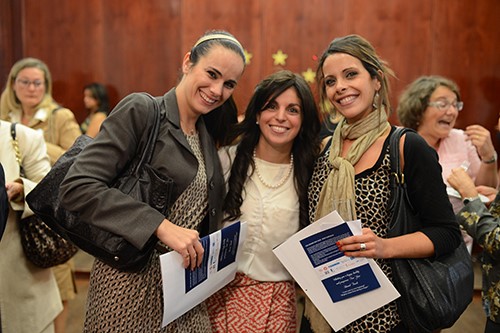 EJCC aims to strengthen ties and create bridges between the EU Institutions and Jewish values. Through diverse events, seminars, and meetings in the premises of the EU institutions, officials and civil servants can discover the wealth of Judaism,as a comprehensive and inclusive role player in European culture, and the universality of its values.
EJCC aims to strengthen ties and create bridges between the EU Institutions and Jewish values. Through diverse events, seminars, and meetings in the premises of the EU institutions, officials and civil servants can discover the wealth of Judaism,as a comprehensive and inclusive role player in European culture, and the universality of its values.
The EJCC is present in the EU Institutions through the organization of all kinds of events, conferences, seminars, and meetings in the premises of the EU in order to provide more information on Jewish topics and promote Jewish culture. Throughout the years, High ranking personalities and decision makers have been attending and supported EJCC projects and events.
For more info please visit https://www.ejcc.eu/about/

JewishGen
Our Mission
To preserve our Jewish family history and heritage for future generations.
About JewishGen.org
JewishGen serves as the global home for Jewish genealogy. Featuring unparalleled access to millions of records, it offers unique search tools, along with opportunities for researchers to connect with others who share similar interests.
Award-winning resources such as the Discussion Group, Family Finder, and ViewMate, are relied upon by thousands each day. In addition, JewishGen's extensive informational, educational and historical offerings, such as the Jewish Communities Database, Yizkor Book translations, InfoFiles, and KehilaLinks, provide critical insights, first-hand accounts, and context about Jewish communal and familial life throughout the world.
Offered as a free resource, JewishGen.org has facilitated thousands of family connections and success stories, and is currently engaged in an intensive expansion effort that will bring many more records, tools, and resources to its collections.
Why We Are Unique
At JewishGen, we look at the past, and try to reclaim the memory of what was. But by itself, memories are not enough. We can’t live in the past, and we can’t reclaim it. But we can allow the memories of the past to shape us, to shape our sense of identity, and to shape what we will be transmitting to future generations.
This is what JewishGen is about, and why we are unique. Our work transcends the basic definition of genealogy. We are about connecting and linking a glorious and rich past in order for it make an indelible impact upon who we are today, and for it to influence what we will be transmitting to future generations.
But that does not happen by itself. JewishGen has become the world class organization it is, because of the incredible help of nearly 1000 volunteers, who come to us from a variety of different backgrounds, circumstances and experiences – but who all believe in our mission, understand the importance of our work, and in the legacy that we are preserving

Jewish Virtual Library
Jewish Virtual Library
The Jewish Virtual Library (JVL) is your source for information about Jewish history, Israel, U.S.-Israel relations, the Holocaust, anti-Semitism and Judaism. The JVL currently has more than 25,000 articles and 10,000 images and is accessed by users in more than 230 countries and territories worldwide.
The JVL is not just an historical archive - it is also the place to find talking points and factual analysis on the most important news stories. When an issue comes to the fore and you need data fast, the JVL is the first place you should look.
The JVL purposely avoids links with other sites so as to make this a one-stop shop for information. Our goal is to provide the basic information you need and we have purposely kept most of the entries brief to make them more digestible. Some will provide all the information you need, others should be viewed as a starting point. We stick to the facts and make as many primary source and original documents available as possible.
The Jewish Virtual Library is a “living” library.
It is constantly updating, changing and expanding.
Users should not interpret the presence - or lack - of specific material as a reflection of any particular bias. Many entries are included because of their availability. Entries will be updated and added as new data is received. In addition, we add more articles, pictures, maps, charts and other materials on a daily basis.
The process of archiving material relating to nearly 6,000 years of Jewish history has just begun. What you can't find today is likely to be here the next time you visit. As always, we encourage users to contact us with suggestions for new articles or corrections to current ones. Also, if you would like to work with us to prepare new materials, we welcome contributions.
For questions and comments <Contact Us>

Federación Sefaradí Latinoamericana
 The Latin American Sephardic Federation (FeSeLa) is the umbrella organization of the Sephardi communities of Latin America with affiliation to the World Sephardi Federation and the World Zionist Organization. The mission of FeSeLa is to represent the Latin American Sephardic communities while promoting unity of the Jewish people and its connection to the State of Israel and Sephardic culture.
The Latin American Sephardic Federation (FeSeLa) is the umbrella organization of the Sephardi communities of Latin America with affiliation to the World Sephardi Federation and the World Zionist Organization. The mission of FeSeLa is to represent the Latin American Sephardic communities while promoting unity of the Jewish people and its connection to the State of Israel and Sephardic culture.
FeSeLa promotes the development of spiritual, social and cultural Jewish and Zionist life, at the Latin American and world level.
FESELA GOALS
- Represent the Latin American Sephardic communities.
- Integrate the communities living in Latin America into the activity ofJudaism and Zionism.
- Encourage and promote the development of Jewish and Zionist spiritual, social and cultural life, at the Latin American and world level.
- Participate and / or collaborate with all the organizations that direct Jewish and Zionist community life, at the Latin American and world level.
- Support identification campaigns with the State of Israel, on a Latin American and global level.
- Coordinate and promote collaboration between Sephardic institutions in Latin America.
For more information, please visit FeSela's Website.

TOURO SYNAGOGUE
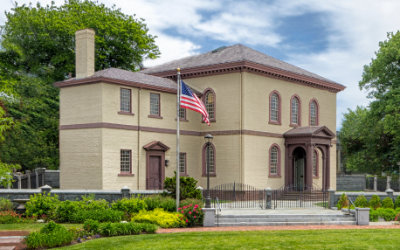
The Touro Synagogue built in 1763 in Newport Rhode Island It is the oldest synagogue in the United States dating to the colonial era and was declared a National Historic site in 1946. The small but growing colony of Newport received its first Jewish residents in the 17th century, possibly as early as 1658. The earliest known Jewish settlers arrived from Barbados, where a Jewish community had existed since the 1620s. They were descendants of Sefarad, Jews of the Iberian Peninsula, now days Spain and Portugal; their families had migrated from Amsterdam and London to Brazil and then to islands in the Caribbean. In Newport they formed a congregation called Nephuse Israel (Scattered of Israel), the second oldest Jewish congregation in the United States. By 1677, the community realized the need to acquire land for a Jewish cemetery. Two of the original immigrants, Mordechai Campanal and Moses Pacheco purchased the lot at the corner of what is now Kay and Touro Streets for this purpose.
In the 1680s, Mordechai Campanal, Moses Pacheco and fellow Jewish settlers, Abraham Burgos and Simon and Rachel Mendes tested the British Navigation laws which prohibited aliens from engaging in mercantile trades. In 1684 the General Assembly of Rhode Island resolved that the group was able to conduct business, and that they were entitled to the full protection of the law as "resident strangers."
Building the Synagogue
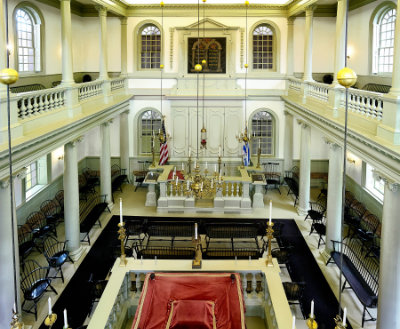
Through the early and middle 1700s, Newport rose in prominence and importance, taking a leading role in the shipping and mercantile trades of the American Colonies. By 1758, the Jewish population had grown sufficiently that there was a need for a house of worship. The Congregation now known as Congregation Jeshuat Israel (Salvation of Israel) engaged Newport resident Peter Harrison to design the synagogue. Harrison, a British American merchant, and sea captain, was self-tutored in architecture, studying mostly from books and drawings. He had already completed the building of Newport’s Redwood Library and King’s Chapel in Boston. Construction began on the “Jews Synagogue” in 1759. At the same time, Harrison was also building Christ Church in Cambridge, Massachusetts, and the Brick Market in Newport.
Several theories have been put forth as to how Harrison, having no direct experience of the needs and requirements of a Jewish house of worship, could execute the elegant design of New England’s first synagogue. He had a limited choice of earlier models to draw on in the Western Hemisphere. He might have seen the Mikvé Israel Synagogue on the island of Curaçao. Their first building was constructed in 1703 and their second building had been dedicated in 1732. Congregation Shearith Israel in New York had also already built their first Mill Street Synagogue (dedicated in 1730). Jewish communities throughout America’s mid-Atlantic region and in the Caribbean were closely tied to Newport’s Jewish citizens through family and business interests. Generous financial support also came for the new building in Rhode Island from both of these congregations and from the Jewish communities in London, Jamaica, and Surinam.
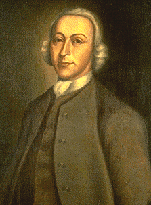 For the building’s exterior Harrison drew on his knowledge of and enthusiasm for Palladian architecture. He is credited with being one of the first to bring this popular European architectural style to the American colonies. For the interior, his best references came directly from the members of the congregation, notably, the Hazzan [prayer leader], Isaac Touro, who had only recently arrived from Amsterdam. The Newport building was completed in 1763 and was dedicated during the Chanukah festival celebrations on December 2nd of that year. The dedication ceremony was a regional celebration attended not only by the congregation, but also by clergy and other dignitaries from around the colony including Congregationalist Minister Ezra Stiles who later became the president of Yale University. His diaries have proven a treasure trove of information on Newport, the Rhode Island colony, and the Jewish community of the mid-eighteenth century.
For the building’s exterior Harrison drew on his knowledge of and enthusiasm for Palladian architecture. He is credited with being one of the first to bring this popular European architectural style to the American colonies. For the interior, his best references came directly from the members of the congregation, notably, the Hazzan [prayer leader], Isaac Touro, who had only recently arrived from Amsterdam. The Newport building was completed in 1763 and was dedicated during the Chanukah festival celebrations on December 2nd of that year. The dedication ceremony was a regional celebration attended not only by the congregation, but also by clergy and other dignitaries from around the colony including Congregationalist Minister Ezra Stiles who later became the president of Yale University. His diaries have proven a treasure trove of information on Newport, the Rhode Island colony, and the Jewish community of the mid-eighteenth century.
For a virtual tour of Touro Synagogue click http://jewishhistory.com/TOURO/

Society for Crypto-Judaic Studies
Our Mission
The Society for Crypto-Judaic Studies was founded in 1991 as a multi-disciplinary academic and secular association that fosters research, networking of people and ideas, and the exchange of information, among scholars and descendants of conversos, regarding the historical and contemporary developments involving crypto-Jews of Iberian origins and other hidden Jewish communities around the world.
Membership dues and donations fund the programs and publications of this non-profit organization [501(c)3], open to any and all individuals interested in learning more about this cultural phenomenon.
This site allows you to become an SCJS member - online - and pay with any major credit card. Like to make a tax-deductible charitable donation to us? Do it through our secure online donation form.
Also available -- All of our previous articles from the "old website" as well as text from the HaLapid academic journals in PDF format are now available online for your personal research. Check it out -- click here.

National Museum of American Jewish History
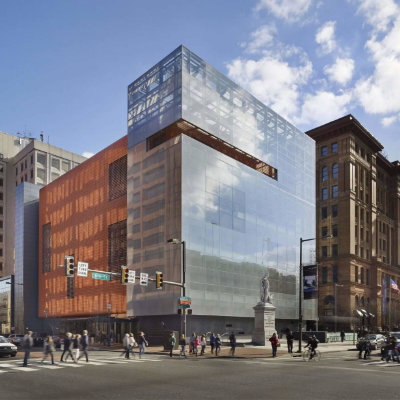 The National Museum of American Jewish History (NMAJH) on Philadelphia's Independence Mall has served hundreds of thousands of visitors, originated award-winning special and traveling exhibitions, held hundreds of programs, and educated 12,000 school-aged children annually - all aimed at inspiring people to explore their own heritages, histories, and traditions by reflecting on how immigrants shape and are shaped by the American experience. Acclaimed story-focused, immersive exhibitions include Chasing Dreams:Baseball and Becoming American, 1917: How One Year Changed the World, and Leonard Bernstein: The Power of Music, and Power of Protest: The Movement to Free Soviet Jews. Educators around the world use our national curriculum OpenBook: Discovering American Jewish History Through Objects.
The National Museum of American Jewish History (NMAJH) on Philadelphia's Independence Mall has served hundreds of thousands of visitors, originated award-winning special and traveling exhibitions, held hundreds of programs, and educated 12,000 school-aged children annually - all aimed at inspiring people to explore their own heritages, histories, and traditions by reflecting on how immigrants shape and are shaped by the American experience. Acclaimed story-focused, immersive exhibitions include Chasing Dreams:Baseball and Becoming American, 1917: How One Year Changed the World, and Leonard Bernstein: The Power of Music, and Power of Protest: The Movement to Free Soviet Jews. Educators around the world use our national curriculum OpenBook: Discovering American Jewish History Through Objects.
NMAJH's centerpiece is a 25,000 sq. ft. core exhibition featuring 1,000 historical artifacts, 2,000 images, hands-on interactives, films, and soundscapes that illuminate over 360 years of history. Visitors experience a story whose events, themes, and ideas are shaped both by their American and Jewish contexts - across the street from where our nation was founded, and both the Declaration of Independence and the Constitution were signed. NMAJH offers a Jewish lens on how we got to Independence Hall and what happened next, how everyday people experience the values and ideals enshrined in our country's founding documents and symbolized by the Liberty Bell.
Founded by members of historic Congregation Mikveh Israel during the 1976 Bicentennial Celebration, NMAJH inaugurated a new 100,000 sq. ft. building overlooking the Liberty Bell and Independence Hall in 2010. NMAJH stewards a preeminent collection of objects and documents that trace Jewish-American lives from the colonial period to the present day. The Museum has received numerous awards and has been featured in national publications like the New York Times, Washington Post, and Wall Street Journal as well as on NPR and CBS Sunday Morning.

Hadassah-Brandeis Institute
For more than 20 years, HBI has not only embraced but emboldened those who seek to explore, understand, question and re-envision the rich and complex interplay of Judaism, women and gender.
The genesis of HBI can be traced to a 1995 report of the Hadassah-sponsored National Commission on American Jewish Women, chaired by Brandeis sociologist Shulamit Reinharz. Titled "Voices for Change: Future Directions for American Jewish Women." The report summarized existing research and concluded that while information on Jewish women's history, lives and culture existed, there was need robust support for future research. Thanks to a generous grant from Hadassah, the Women's Zionist Organization of America, HBI (originally known as the International Research Institute on Jewish Women) opened at Brandeis University in 1997.
If an international research institute committed to upending assumptions and giving voice to new ideas found its home at Brandeis, it's no coincidence. The university has audacity in its DNA. Built on the values of inclusivity and intellectual rigor, Brandeis has been promoting the Jewish tradition of asking questions - including deep and difficult ones - for more than 70 years
One of the world's only academic centers of its kind, HBI serves as both incubator and launch pad for new perspectives on Jews and gender. Through residencies and awards, we offer scholars from around the world and across a wide range of disciplines the extraordinary gift of space and time to probe the Jewish- and gender-related issues. Through conferences and lectures, as well as our journal, book series and blog, we give them a platform for sharing their ideas and discoveries.
Because we also believe in nurturing nascent scholars of Jewish gender studies, we offer undergraduate and graduate students internships, assistantships, travel grants and research prizes to encourage and recognize their contributions to the field. In addition, HBI maintains its own projects that support interdisciplinary scholarship on such essential topics as gender equality under religious law, human rights, as well as on Jewish life and gender in Latin America.
Equally encouraging of creative work, we celebrate artists working in all media by exhibiting their work in our own dedicated gallery and inviting them to engage with their audiences through artist talks.

Sue and Leonard Miller Center for Contemporary Judaic Studies
George Feldenkreis Program in Judaic Studies
University of Miami
University of Miami Sue and Leonard Miller Center for Contemporary Judaic Studies and the George Feldenkreis Program in Judaic Studies at the UM's College of Arts and Sciences.
 The George Feldenkreis Program in Judaic Studies is a broad, flexible, non-theological, interdisciplinary program designed for undergraduates to gain an understanding of Jewish civilization and its diverse cultural experiences. The program analyzes the multi-faceted, socio-historical, 4,000-year record of the Jewish people. Courses taught in, and combined with, the experiences of Jews in different times and places. For more information, please visit
The George Feldenkreis Program in Judaic Studies is a broad, flexible, non-theological, interdisciplinary program designed for undergraduates to gain an understanding of Jewish civilization and its diverse cultural experiences. The program analyzes the multi-faceted, socio-historical, 4,000-year record of the Jewish people. Courses taught in, and combined with, the experiences of Jews in different times and places. For more information, please visit

The Sue and Leonard Miller Center for Contemporary Judaic Studies at the University of Miami provides an objective, in-depth exploration of the issues and trends which have affected the Jewish people over the last 100 years. The Center is engaged in outreach activities - such as lectures, conferences, and symposia to which the public is invited; teaching via the University’s Judaic Studies Program; research and publications. We invite you to explore the various aspects of our activities on our website.

Congregation Mikveh Israel
Congregation Mikveh Israel, "The Hope of Israel," was founded in 1740 and is an unparalleled American Jewish Institution. It has a two-fold tradition that is the synthesis of the Spanish-Portuguese Jewish ritual and the ongoing development of the American Jewish community.
Located in Center City, Philadelphia, Pennsylvania, at Fourth Street between Arch and Market, we are both an active synagogue and proud progeny of a distinguished heritage and tradition. Within these pages, we hope to offer you a picture of us and to encourage you to visit in person. This also provides a convenient medium for distributing information that our members and the community in the Philadelphia area and beyond may find of interest.

The Jewish Council of the Emirates (JCE)
Shaarei Mizrah
The Jewish Council of the Emirates (JCE)/Shaarei Mizrah is the representative body of the Jewish community in Dubai. The JCE/SM has more than 500 active members of diverse national origins. The JCE is formally affiliated with the World Jewish Congress. Under the leadership of Senior Rabbi Dr. Elie Abadie, JCE/SM will be hosting cultural, social, and religious events which will contribute to the growth of an active and vibrant Jewish community in the Emirates.
It has hosted guests from around the world. The community is comprised of many families from a medley of many countries from around the world.

Temple Moses
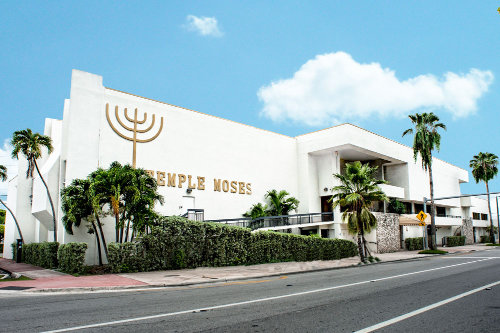 The Sephardic Congregation of Florida (Temple Moses), originally known as Cuban Sephardic Hebrew Congregation, was founded in 1968 by Cuban Jewish refugees forced into exile during the early 1960's. Today we are a large and diverse extended family: our community; a place of strength, comfort and inspiration.
The Sephardic Congregation of Florida (Temple Moses), originally known as Cuban Sephardic Hebrew Congregation, was founded in 1968 by Cuban Jewish refugees forced into exile during the early 1960's. Today we are a large and diverse extended family: our community; a place of strength, comfort and inspiration.
A place to join with others, committed to the hard but rewarding work of continuing our rich Sephardic traditions and to fulfill our dreams that our children and grandchildren will grow up, having inherited a fabulous Sephardic heritage.

St Augustine
Jewish Historical Society
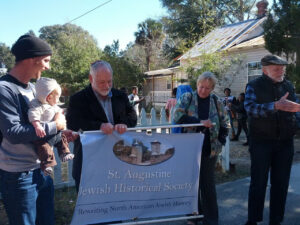 The St. Augustine Jewish Historical Society was formed on November, 2011, incorporated as a Florida non-profit corporation on March 29, 2012, and received IRS 501.C3 status on February 28, 2013. Rabbi Merrill Shapiro, formerly adjunct faculty at the University of Central Florida, serves as chairman of the Board of Directors.
The St. Augustine Jewish Historical Society was formed on November, 2011, incorporated as a Florida non-profit corporation on March 29, 2012, and received IRS 501.C3 status on February 28, 2013. Rabbi Merrill Shapiro, formerly adjunct faculty at the University of Central Florida, serves as chairman of the Board of Directors.
The organization’s founding was prompted by a St. Augustine Archeological Association discussion about the possibility that hidden Jews (Conversos forced by the Spanish Inquisition to convert to Catholicism) may have been on the ships that arrived in St Augustine with Pedro Menendez in 1565.
Our Mission
The of the St. Augustine Jewish Historical Society is to promote greater knowledge and understanding of the Jewish experience in St. Augustine within a broad cultural context from the founding of the City in 1565 to the present.

Gratz College
Gratz College has a long history of educational service to the Philadelphia area. Founded in 1895, Gratz is the oldest independent and pluralistic college for Jewish studies in North America. From its inception Gratz holds the distinction of being the first institution of advanced Jewish learning to accept women on par with men.
Addressing evolving needs, Gratz College grew to offer training programs for educators and communal professionals in the Jewish and secular communities. Over the last 20 years, the College has expanded its offerings to include a broad array of credentials and programs, including a PhD and EdD, masters’ level programs, BA completion programs, and graduate and undergraduate certificates. An early adopter of online education, Gratz offers blended and fully online degrees and has enrolled students from 36 states and 6 countries. Gratz is a private non-profit institution with a Carnegie Classification as a Master’s – Large Programs level

The St. Louis Jewish Community Center
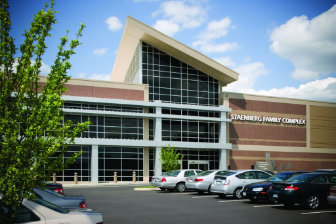 The St. Louis Jewish Community Center (the J) is a multigenerational gathering place, offering a variety of programs and services for the St. Louis Jewish community and the community at large. We welcome people of all backgrounds and faiths.
The St. Louis Jewish Community Center (the J) is a multigenerational gathering place, offering a variety of programs and services for the St. Louis Jewish community and the community at large. We welcome people of all backgrounds and faiths.
The J provides educational, cultural, social, Jewish identity-building and recreational programming on its campuses in Creve Coeur, Chesterfield and at Camp Sabra, located at the Lake of the Ozarks.
Throughout our history, the J, a non-profit organization, has been the central meeting place of the Jewish Community. It’s the one place where families, regardless of affiliation, can feel comfortable and welcome. We have evolved through the years to meet the changing needs of our members, our Jewish community, and the entire St. Louis region.
Everyone is welcome at the J. Our Mission The St. Louis Jewish Community Center enriches lives, builds community, promotes inclusivity, and creates meaningful Jewish experiences.

Jewish-American Hall of Fame
The Jewish-American Hall of Fame was established by Mel Wacks at the Judah L. Magnes Museum in Berkeley, California in 1969, with the support and encouragement of Seymour Fromer, Director of the Magnes Museum. It was planned to fight antisemitism by issuing annual medals and mount Jewish-American Hall of Fame plaques to commemorate the accomplishments of men and women in various fields, historic sites and events.
The Jewish-American Hall of Fame remained associated with the Magnes Museum until 2000, when the museum announced it was merging with the San Francisco Jewish Museum (now The Contemporary Jewish Museum). This “much anticipated union was closely followed by a quickie divorce on grounds of irreconcilable differences” (Magnes Judaica Museum Joins Berkeley Library – Review, New York Times,Jan. 22, 2012)― and the Judah L. Magnes Museum eventually morphed into the Magnes Collection of Jewish Art and Life at the University of California, Berkeley, in 2012. On July 15, 2001 the Jewish-American Hall of Fame became an operating division of the American Jewish Historical Society, located in The Center for Jewish History, thanks to the efforts of Dr. Michael Feldberg, Executive Director of the AJHS.
In 1996, The Jewish-Museum in Cyberspace website www.amuseum.org was founded, featuring the Jewish-American Hall of Fame. Beginning in 2010, the Jewish-American Hall of Fame plaques went on permanent exhibit at the Virginia Holocaust Museum in Richmond. And in 2019, the Jewish-American Hall of Fame Medal Collection was established at the Cincinnati Skirball Museum, located on the campus of Hebrew Union College-Jewish Institute of Religion.
For more information go to http://www.amuseum.org/jahf.
About the JCRC:
Serving Jewish communities of the North since 1939, JCRC builds relationships to fight antisemitism and bigotry; educates about Judaism, Israel, antisemitism, and the Holocaust; advocates for Jewish values and priorities; and safeguards the Jewish community.
- Serves as the central public affairs voice of the Jewish community to elected officials, the media, government agencies, and other religious, ethnic, and cultural groups.
- Represents the Jewish community’s interests on significant legislative, social justice, and public policy issues in a non-partisan manner.
- Promotes and facilitates the security of the Jewish community and Jewish institutions, and assists community members dealing with discrimination.
- Educates and mobilizes the Jewish community for Israel advocacy.
- Encourages and facilitates open dialogue and consensus among the Jewish community’s diverse religious, political and social perspectives.
- Provides Holocaust education and diversity programming.
- Remembers the victims and honors the survivors of the Holocaust.
- Sponsors community and educational forums; and
- Partners with local and national non-profit, interfaith, and Jewish coalitions.
For more information visit the JCCRC website at https://www.minndakjcrc.org/

American Society for Yad Vashem
The American Society for Yad Vashem (ASYV) is the support arm of Yad Vashem Holocaust Museum, the world Holocaust Center in Jerusalem.
ASYV was established in 1981 by a group of Holocaust Survivors, spearheaded by Eli Zborowski z”l. Our mission is to perpetuate the legacy of the victims and survivors of the Shoah through research, education, publications, exhibitions, and philanthropy. For more than 40 years, ASYV has worked alongside Yad Vashem, The World Holocaust Remembrance Center in Jerusalem, in an effort to both remember the past and shape the future. To learn more, go to their website.



















